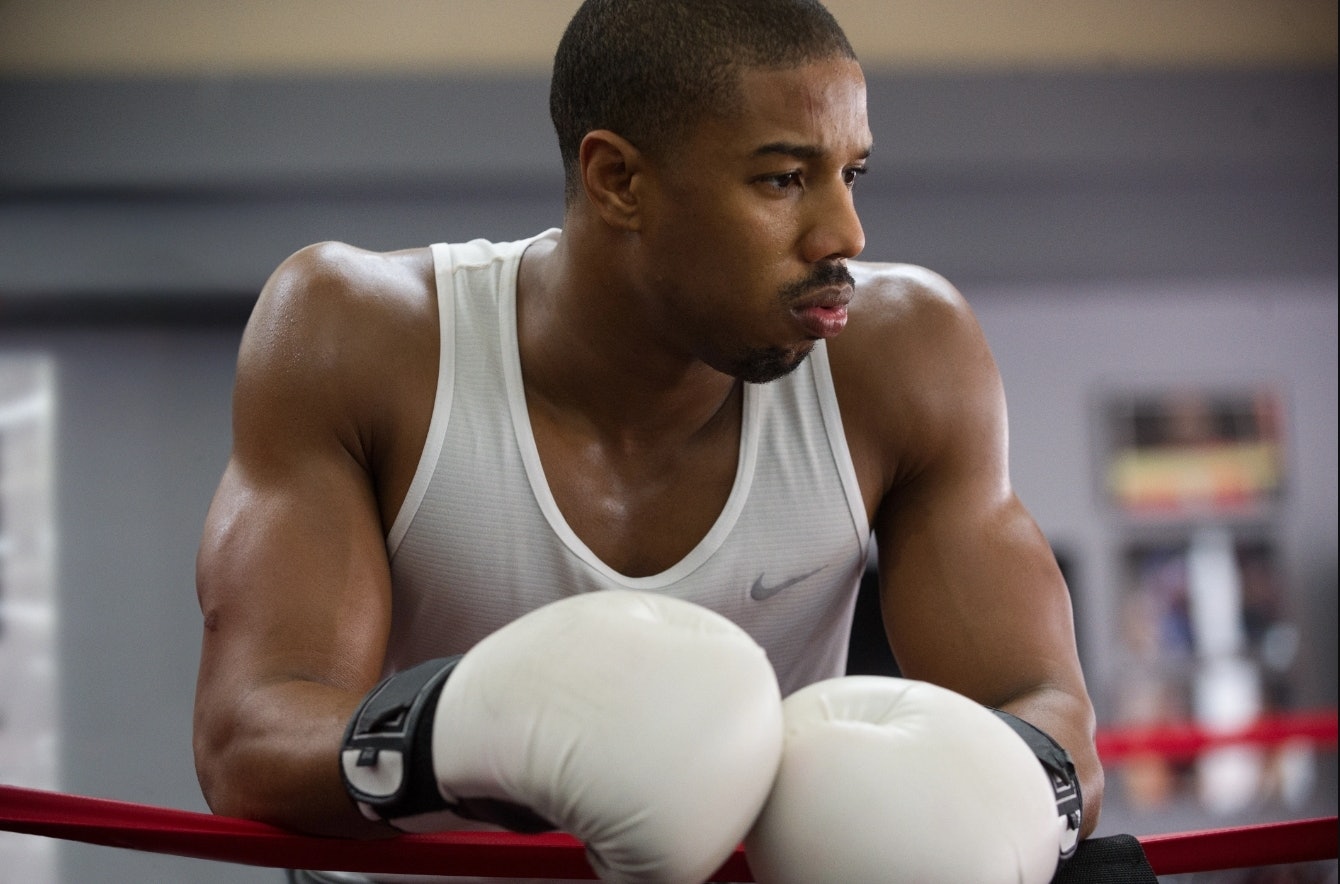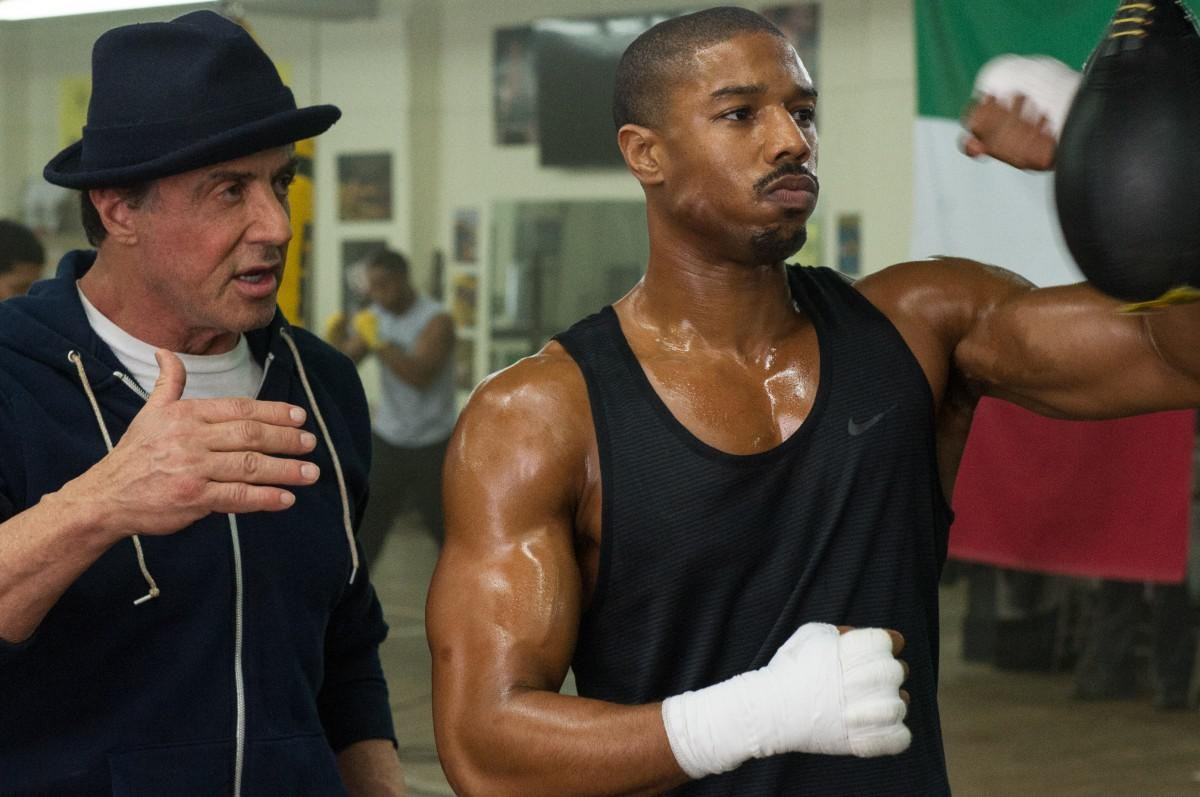
After 60-year-old Rocky Balboa (Sylvester Stallone) went a full ten rounds with Mason “The Line” Dixon (Antonio Tarver) in 2006, it felt impossible to think of the aging and broken boxer stepping back into the ring. The franchise itself, six films deep and running on sweat and steam, seemed like a relic, a reflection of Hollywood’s neverending capacity for naval gazing. The 2000s and 2010s are scattered with the death knells of franchises that overstayed their welcome, so it felt fitting that Stallone would choose to end the series while it was ahead.
But the spirit of Rocky has always been stubborn and resilient. In 2013, when it was announced that Stallone was developing a spin-off alongside a sophomore director, many people scoffed — there was no way the series could pull off the magic once again. Little did they know that Ryan Coogler was nursing a new vision for the series, and the result was one of the most visceral, human, and uplifting boxing films ever made.
Creed explores the legacy of the former heavyweight champion and follows the illegitimate son he left behind. Young Adonis “Donnie” Creed is the product of Apollo’s secret extramarital affair, and his frequent trips in and out of juvie are an expression of his rage at the world and his father. When Apollo’s widow Mary Anne (Phylicia Rashad) takes him in, he’s given a shot at life many would kill for, and yet he turns away from it all to put on his father’s gloves and duke it out with his demons in the ring. Both Ryan Coogler and Aaron Covington were massive fans of Rocky, and in their script they sought to return to the dynamic of the first three films by bringing Balboa in to mentor the son of his once bitter rival.
When Coogler cast Michael B. Jordan in Fruitvale Station he had no idea that he was also discovering a lifelong collaborator, but Creed is an incredible testament to their artistic synergy. Jordan gives a career-best performance by rejecting the showmanship and charisma of Carl Weathers’ Apollo Creed in favor of something far more underplayed and naturalistic. We meet Adonis as a man internalizing his insecurities and the trauma of his childhood, and the beauty of the arc that Coogler and Jordan take him on is in the simplicity of him finding healthy ways to vanquish his demons.
A crucial conduit is Donnie’s relationship with Rocky Balboa, and their chemistry makes every scene between them riveting to watch. The way Balboa rises to the challenge of mentoring Adonis is a perfect way to revive the fire in his heart, and it grants the space for Stallone to deliver an emotionally devastating performance as an old man rediscovering what it means to live and be loved. Coogler pulls off an incredible balancing act of both mythicizing and humanizing Rocky, which allows him to be the thematic lynchpin tying the reboot to the original without overshadowing the rest of Adonis’ world.

At the center of Creed is a beautiful cast of supporting characters with earnest relationships that all reinforce the film’s focus on passion. Phylicia Rashad carries Mary Anne with such loving motherly gravitas, yet her stern rejection of Adonis’ boxing is what teaches him that he needs to learn to live for himself. On the flip side, the sparks fly when Donnie meets Bianca (Tessa Thompson), a young musician from Philly he falls for. Her determination to follow her dreams and keep making music despite struggling with progressive hearing loss is both a refreshingly inclusive character element and a benchmark of resilience that Donnie learns to emulate.
When the truth about his father comes out and Donnie is challenged by “Pretty” Ricky Conlan, the current world light-heavyweight champion (played by real-life boxer Tony Bellew), the movie kicks into high gear. Coogler captures the momentum of Adonis’ training with the kind of locomotive energy that makes you feel like you could charge a bull. Seeing the streets of Philadelphia rally around Rocky and Donnie is a heartwarming love letter to the city that birthed a fictional icon, and the training montage is the triumphant crescendo of Ludwig Görannson’s breathtaking score. Throughout the movie’s many trials and tribulations, its greatest quality is how sheerly uplifting the entire affair is.
Creed would already be an exemplary drama with nothing but its impact outside of the ring, but it just wouldn’t be a Rocky film without some slugfests, and Ryan Coogler directs the central fight scenes with an exhilarating sense of immersion. The thrilling one-take fight between Creed and Leo Sporino is a masterclass of fluid camera movement, and it happens less than halfway into the movie. When Adonis finally steps into the ring with Ricky Conlan, Coogler and cinematographer Maryse Alberti throw the audience into the middle of the action, and the film’s impeccable editing manages to find intimacy amid the chaos. Coogler turns the boxing matches into screen-shattering spectacles, while making sure to find those crucial moments of catharsis that remind us what’s being fought for.
It’s rare that a beloved franchise catches its second wind with such vigor, and Creed truly feels like a miracle in how exceptional it really is. It’s not just a good boxing film, nor is it just a good Rocky movie; it’s a moving character drama defined by stellar performances and explosive action that raises the bar for an entire genre. It’s an underdog’s dream, one executed by a director unshakeable in his commitment to empathetic and grounded storytelling. While the fights command staggering amounts of tension, Creed’s most powerful drama comes from watching Adonis strive to be the kind of man his father would be proud of – and an even better one beyond that.
Creed is streaming on HBO Max.







